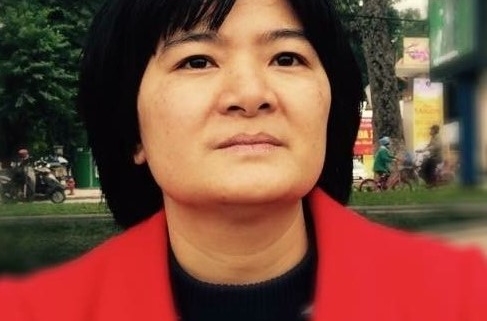Vietnam Free Expression Newsletter No. 42/2018 – Week of October 22-28
Featured Image: Political prisoner Tran Thi Nga
Greetings from The 88 Project! We are bringing you news, analysis, and actions regarding human rights and civil society in Vietnam during the week of October 22-28. Fifteen protesters will appeal their sentences for “disturbing public order” on November 9. They are just some of the dozens of protesters and activists detained during or after national protests in June 2018. This week, we have updates from prison on political prisoners Nguyen Trung Ton and Nguyen Van Hoa; Ton is barely able to walk from an injury sustained during his kidnapping in 2017, and Hoa was beaten at a courthouse when he refused to help authorities in their prosecution of fellow environmental activist Le Dinh Luong. Female labor rights activist Tran Thi Nga’s situation in prison is unknown; her family has not been able to visit her in two months. And this week we remember young blogger and university student Phan Kim Khanh, who was sentenced to six years in prison one year ago. Now in the US after her sudden release and exile, Nguyen Ngoc Nhu Quynh (Mother Mushroom) spoke out about her reluctance to leave her country. Several activists were at risk this week, including a man who was detained for questioning regarding protest leaflets he made, a Facebooker and member of a constitutional rights group whose 13-year-old daughter was called in for questioning about him, and two activists who were effectively held under house arrest on October 28. In international advocacy, Amnesty International has called on Vietnam to amend its Cybersecurity Law, and a member of the European Parliament has publicly questioned why the EU isn’t pressing Vietnam farther on its human rights obligations under the proposed EU-Vietnam Free Trade Agreement. Also, after a publisher was punished for books deemed to be harmful to the Communist Party, two Party members resigned. In the news, read about Vietnam’s new president, Nguyen Phu Trong, and analysis of Mother Mushroom’s release from prison. Please take action for Tran Thi Nga, urging authorities to permit her family visits, and for the many political prisoners who remain behind bars in Vietnam. Please also support our work by making a donation here in the final days of our crowdfunding campaign to support female activists.
And please subscribe to the newsletter!
HUMAN RIGHTS & CIVIL SOCIETY
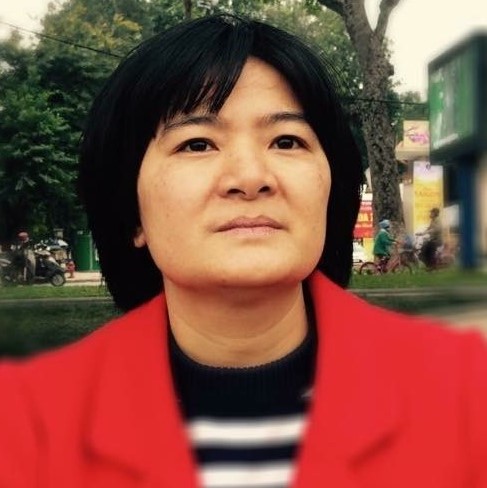
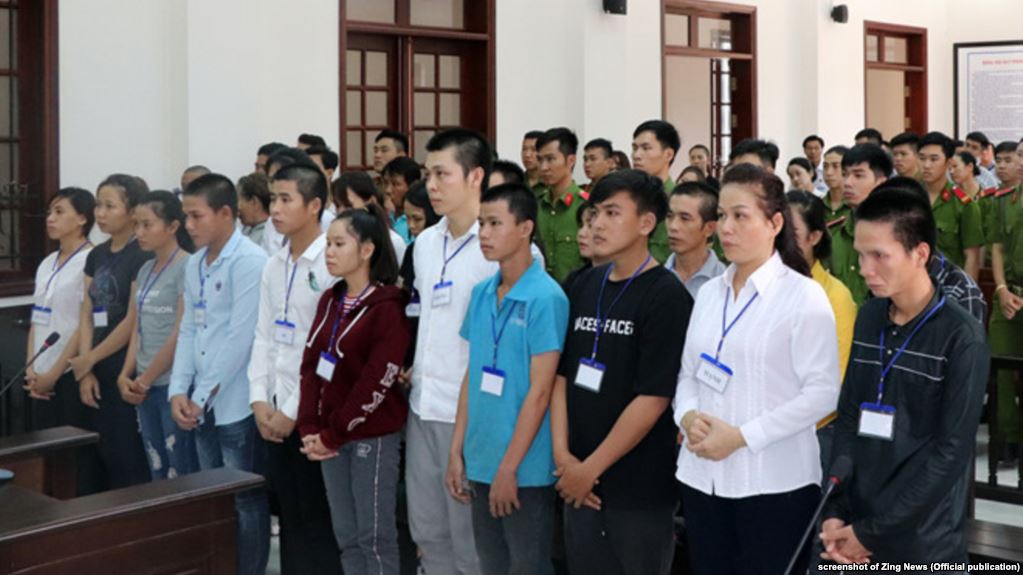
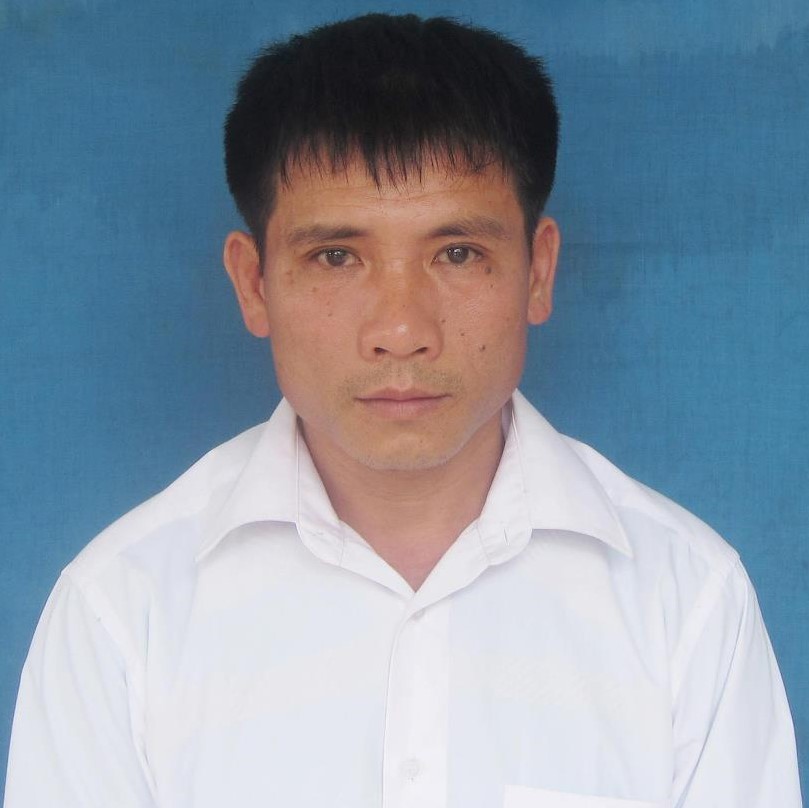

In addition, Hoa’s leg had a tumor but the detention center only checked it without providing any treatment. He submitted an application, asking for treatment, but it has not been accepted. Moreover, he alleges that two investigators from Ha Tinh Province took illegal actions when interrogating and investigating him about incidents he wasn’t involved with, and they threatened he would be prosecuted in other cases if he did not cooperate with the questioning. Also, the Investigation Agency of Ha Tinh province did not deactivate his Facebook account during their investigation of him but instead used it to carry out illegal actions. Hoa was sentenced to seven years in prison in November 2017 for livestreaming footage of protests for compensation after the 2016 Formosa environmental disaster.

Nguyen Ngoc Nhu Quynh said that she did not want to leave Vietnam and was reluctant to be exiled.
After arriving Houston, Texas safely she said on October 19 that “if she had the right to choose, she would stay in Vietnam. But she has two children, she had to consider their future.” After over two years in prison in Vietnam, the well-known blogger, also known as Me Nam or Mother Mushroom, was suddenly released from prison on October 17 and sent immediately into exile in the United States. She was accompanied by her mother and two young children.
In the aftermath of Quynh’s release, many have pointed out the dozens of activists, bloggers, journalists, and religious leaders who remain imprisoned in Vietnam. PEN America reflected on the harsh reality, stating: “We can expect to see an even greater surge of dissident arrests next year, as a new, deeply repressive and unduly broad cybersecurity law will take effect in January and grant the Vietnamese government unchecked power to monitor the social media activity of its citizens.”

On October 28, Dao Thu, a lecturer at Hanoi University of Foreign Languages who had participated in protests in Hanoi, was prevented from going to the University and was closely watched. She was stopped from going outside early in the morning to exercise, and when she tried to leave later to go to the university, she was barred from leaving again. Several hours later, security officers kept watching outside of her house. When she was finally able to travel to the university by bicycle, they followed her on motorbikes. Upon finishing teaching her class, she was questioned by two unknown men, and when she returned home, she was again put under surveillance.
Meanwhile, also on October 28, a plainclothes security officer came to block blogger La Viet Dung from leaving his house, perhaps in a bid to keep him from attending an anniversary event for the No-U football club, a group of dissident footballers who have protested Chinese maritime claims. In a livestream video, the man claimed he was just a normal citizen but also admitted he was a security officer who took responsibility for preventing Dung from leaving. During the conflict, the security officer hit Dung’s mother in the head, which was caught on video.
Meanwhile, Vietnam is also in the final stages of securing free trade agreement with the EU, but some are still pressing for more human rights stipulations before approval. Jude Kirton-Darling, a member of the European Parliament, wrote a op-ed on why it’s necessary to push for more change from Vietnam, citing the harassment and jailing of labor rights activists Do Thi Minh Hanh and Hoang Duc Binh and difficulties that pro-democracy advocate Dr. Nguyen Quang A had in making it to Brussels to testify in front of the EU. While some believe pressing Vietnam too hard will lead to the country backing out of the agreement, or working more closely with China instead, Kirton-Darling asserts that the once US-led Trans Pacific Partnership showed that Vietnam will make human rights commitments when requested. “In 2016 Vietnam agreed to a series of detailed commitments on labour rights, including specific legislative reforms, in order to join the TPP, a trade deal involving the US,” Kirton-Darling wrote. “In other words, they gave the US far more than we have been to date asking for.”
NEWS & ANALYSIS
Vietnam: why blogger Mother Mushroom went free: “However, rather than achieving social stability by silencing its critics with the long arm of the law, arresting dissidents often puts them in the spotlight and grants them international prestige when news and social media spread word of their detention and often harsh treatment. In a video conference interview with Reuters, Quynh recounted her three hunger strikes in prison, the longest lasting 16 days. She also relayed how authorities separated her from other prisoners, so that she couldn’t communicate with them or spread her subversive thinking. The US State Department had lobbied for Quynh’s release and eventually secured the conditions for her to fly to the United States along with her two children and 63-year old mother. The timing of her release during Mattis’ visit was likely meant both to reduce media attention on the story while signalling to the US that Hanoi was willing to show flexibility to Washington’s human rights concerns in order to keep the partnership on positive footing.”
Vietnam was set for reform — until Trump canceled a trade deal: “But the pact had power in Vietnam, one of the signatories. The agreement secured promises from Vietnam’s Communist Party rulers to make space for independent trade unions, outlaw child labor, give private firms more opportunity to compete with the state sector, strengthen environmental controls and allow an unfettered Internet. In exchange, the Vietnamese would gain greater access to the huge U.S. market. Also, one of Vietnam’s regional rivals, China, was excluded. And TPP came at a time when a budding movement of brave Vietnamese activists was using social media to spread ideas about workers rights, transparency, accountability and democracy. Then, in his first week in office, President Trump withdrew from TPP on the dubious complaint that it was bad for U.S. businesses and workers. The impact in Vietnam was unmistakable. As former U.S. ambassador to Vietnam Ted Osius told The Post, ‘It pulled the rug out from under the reformers.'”
What Should Be On New President Nguyen Phu Trong’s Agenda?: “However, the new President Trong may not be able to ignore the mounting opposition to the cybersecurity bill for much longer. As the third cycle of Vietnam’s Universal Periodic Review (UPR) is rapidly approaching in January 2019, one of the most controversial items to be discussed is expected to be this new law. Moreover, just this month, Vietnam is one step closer to sealing the deal with the EU for a Free Trade Agreement, one that is believed to be the most ambitious trade deal in which the EU has made with a developing country. The EU-FTA, nevertheless, comes with a human rights clause where a material breach could allow the other side to suspend the entire agreement unilaterally.”
TAKE ACTION
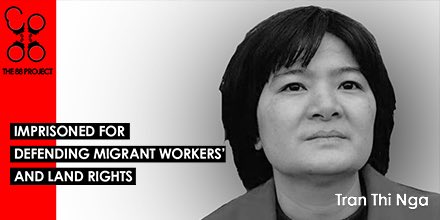
Please take action with Amnesty International for Tran Thi Nga, an imprisoned female labor rights activist who has been denied visits from her family and whose situation in prison remains unsafe. And please consider making a donation to our crowdfunding campaign, which ends this month! With the funds, we will create an interview series with the female activists, sharing details about their backgrounds, personal lives, and motivations for becoming human rights advocates.
Please also take action with English PEN by writing to Vietnamese leaders to support Nguyen Ngoc Nhu Quynh‘s (Mother Mushroom) release but also to call on them to allow her to return home to Vietnam and to release the dozens of other political prisoners who remain behind bars.
© 2018 The 88 Project


